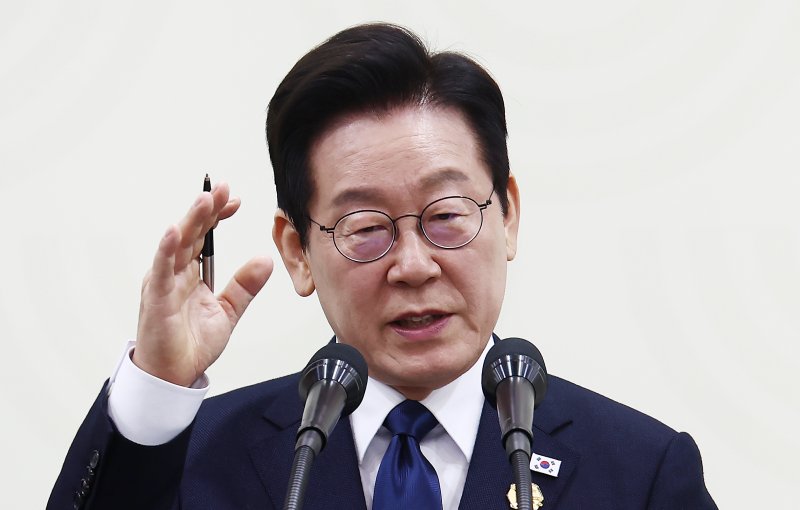President Lee Presides Over APEC Summit Retreat Session...“Realizing an AI Basic Society” [Gyeongju APEC]
- Input
- 2025-11-01 13:33:18
- Updated
- 2025-11-01 13:33:18

Seo Young-jun, Financial News, Gyeongju (North Gyeongsang Province) — On October 31, President Lee Jae-myung held an informal dialogue with invited countries, and on November 1, he presided over the retreat session on the second day of the 32nd APEC Summit.
Only the leaders of APEC member economies attended this retreat session. The leaders exchanged views on how APEC can cooperate and contribute to maintaining the dynamism of the Asia-Pacific region and creating new growth engines amid rapid advances in artificial intelligence (AI), demographic changes, and the growth of cultural and creative industries.
In his opening remarks, President Lee emphasized that the Asia-Pacific region already possesses the potential to proactively respond to changes in the AI era and lay the foundation for innovation and prosperity. He stressed the need to foster an environment conducive to AI innovation and to promote public-private cooperation to realize this potential.
President Lee stated that Korea will pursue policies with the core vision of realizing a global AI Basic Society, enabling people around the world to benefit from advances in AI technology.
He also highlighted that the proposed APEC AI Initiative reflects the determination to turn the sweeping changes brought by AI into opportunities, and that the Asia-Pacific AI Center will contribute to strengthening AI capabilities in the region.
President Lee stressed that demographic changes caused by low birth rates and an aging population have a significant impact on all aspects of society, including economic growth, the labor market, education, and welfare. He called for joint solutions at the APEC level. In this context, he proposed inclusive growth that embraces future generations and cooperation on common challenges, such as addressing demographic issues using AI technologies.
President Lee also drew attention to the cultural and creative industries as new growth engines in response to AI and demographic shifts. He emphasized that the creativity and power of cultural exchange can contribute greatly to this year’s three key APEC priorities—connection, innovation, and prosperity—beyond their economic value.
Following President Lee’s proposals, APEC leaders adopted three outcome documents: the APEC Gyeongju Declaration, the APEC AI Initiative, and the APEC Joint Framework on Demographic Change.
Subsequently, President Lee handed over the chairmanship of the APEC Summit to Chinese President Xi Jinping, expressing Korea’s commitment to actively cooperate for China’s successful leadership.
President Lee concluded the meeting by stating that peace is essential for realizing connection, innovation, and prosperity, and that peace on the Korean Peninsula is a prerequisite for the prosperity of the Asia-Pacific region. He pledged that the Korean government would take proactive measures for peace and called for the support and cooperation of APEC members.
syj@fnnews.com Seo Young-jun Reporter